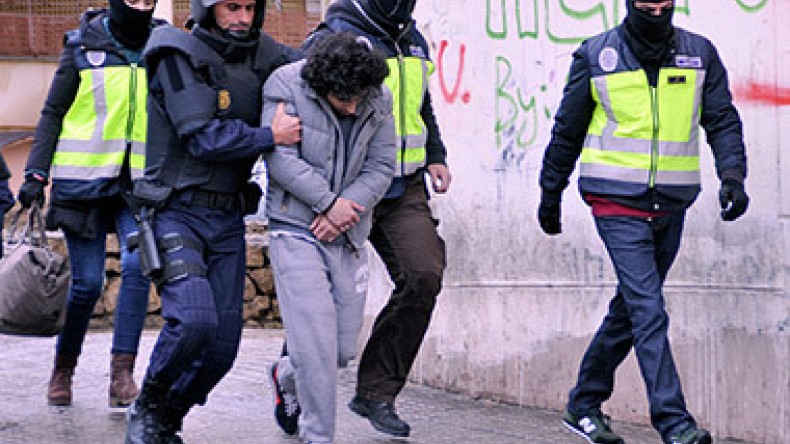
Alienation, rejection of traditional Islam behind jihadist recruitment
The recent arrest of a jihadist recruitment cell in the small French town of Lunel once again raises the issue of the temptation to join radical movements for European youth, which, as experts told Sputnik on Wednesday, is explained by a growing sense of alienation and rejection of traditional Islamic teachings.
On Tuesday, security forces put Lunel into lockdown, raiding sites linked to a jihadist ring and arresting five suspects on suspicion of the recruitment and indoctrination of local youth to wage a jihad in Syria and Iraq.
Reasons
"For many people, it is the increasing sense of alienation with such a [polarized] society, they have a feeling that they don't identify themselves with France," program coordinator at the European Council on Foreign Relations (ECFR) Hugh Lovatt told Sputnik.
Allowing that young jihadists from Europe typically represent the second generation of immigrants, Lovatt said that they are not "Arab enough for the Middle East and not French enough for France."
European Muslims' leanings toward radical teachings could be explained by "a generational shift where you see some rejection of traditional forms of authority, within the family but also traditional Islamic sources as the interpretation of Koran," the expert added.
Lovatt concluded that the young radicals are "turning increasingly towards self-proclaimed Islamic scholars, who actually have very little traditional background."
The Carnegie Center's Middle East Program visiting scholar Joseph Bahout told Sputnik that young extremists "revert to radicalism, because this is the way to express violently these claims and interests that they perceive as being suppressed."
Preventative steps
European governments should "prevent these [radical] groups from operating, recruiters from recruiting and this has to do with surveilling the mosques," Bahout said.
The scholar added that governments should also "have a political answer, which has to do with the situation in the Middle East" and try to improve the social and economic situation in their society by trying "to alleviate the marginalization that is causing radicalization."
"It has to do with employment, with identity, with stigmatization, it has to do with a lot of things," Bahout added.
"What should not be done is pursuing policies that only increase the sense of polarization, alienation that many feel in Europe," ECFR program coordinator told Sputnik.
Police raids on radical Islamist cells have intensified in France, Germany and Belgium following the January attack on the Charlie Hebdo weekly and related killings in France.
Newsfeed
Videos






























